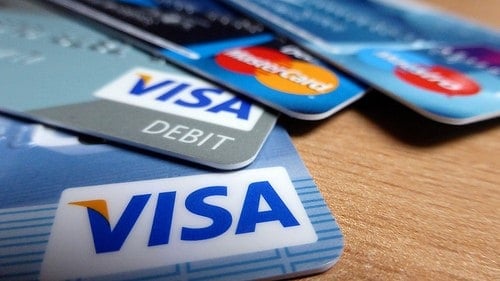Regardless of your opinion of Satoshi Nakamoto’s cryptocurrency, Bitcoin, the technology behind it is revolutionary. Known as blockchain, all Bitcoin transactions are permanent, anonymous, and virtually impervious to tampering and fraud, making it superior to conventional recordkeeping systems.

Invented in 2008, Bitcoin has grown into a legitimate currency accepted in many places online and the high street. It found an early adopter in iGaming websites, some of which now accept Bitcoin exclusively for their video poker, sports betting, and roulette games. The website vegascasino.io, for example, also offers a Bitcoin ‘faucet’, where players can ‘mine’ currency.
However, there’s a lot more to Bitcoin – and other cryptocurrencies – than the value token (the Bitcoin) so here’s a quick rundown of how Nakamoto’s blockchain system works:
Picturing the Blockchain
Imagine blockchain as a bank with records going back to the beginning of your life; it has every transaction you’ve ever made in chronological order. Now, imagine that instead of a single bank, you have hundreds or thousands of banks, all with access to the same information about you, and all linked together.
The beauty of blockchain, and what makes the system so difficult to fool, is that if one of our theoretical banks has information that doesn’t match up with the others, it is flagged by the system and removed.
As the blockchain can hold lots of different kinds of information, such as valuables or property, not just transactions, it has potential beyond Bitcoin. Here are two ways blockchain technology could dramatically improve the quality of life for people around the world:

Storing Vital Information
‘Blood’ diamonds are precious stones mined and sold by warlords in African countries. Their trade is illegal but the certificates are notoriously easy to forge. As blockchain technology creates records that are nearly impossible to change, fraudulent certificates would become a non-issue for diamond traders.
To paraphrase Richard Branson, blockchain technology could also help people in developing countries by providing a permanent record of things like housing deeds and birth certificates, a process that could drastically improve a person’s chances of getting a bank loan or business funding.
Much of blockchain’s potential applications are still in the realm of the theoretical but some organisations are already trying to implement Nakamoto’s technology. The Dubai Government recently announced plans to encrypt its files in blockchain while the Bank of England is creating a new currency based upon blockchain technology, the RSCoin.

Limitations of Bitcoin
However, blockchain technology does have its detractors, especially banks and credit card companies, who note that consumers have a “safety net” of regulation and legislation when banking and spending conventional currencies, something that doesn’t currently apply to Bitcoin and its many spin-offs.
In particular, Bitcoin also handles transactions much slower than credit card providers do, with the former topping out at seven transactions per second compared to the several thousand per second of the latter. However, it’s worth noting that other cryptocurrencies have got around the limitations of Bitcoin by increasing the size of each ‘block’ in the blockchain. Hence, a slow transaction speed isn’t a problem inherent in blockchain technology.
We’re still decades away from a world that operates off the blockchain but the potential benefits of Nakamoto’s technology are difficult to deny.





